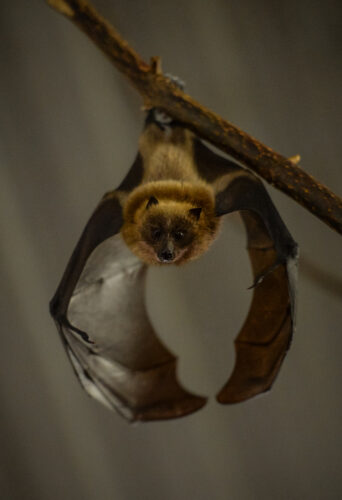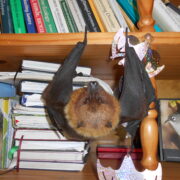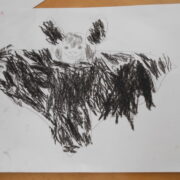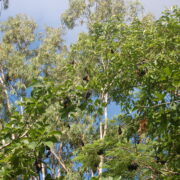The Rodrigues fruit bat was once described as the rarest bat in the world. In our latest conservation film, we dive into their story and discover if they can be saved from the brink of extinction.
Rodrigues is one of the three Mascarene islands: Reunion, Mauritius, and Rodrigues. They’re situated to the east of Madagascar in the Indian Ocean, and Rodrigues is the only place in the world that supports these unique bats.
In the 1970’s, the Rodrigues fruit bat was on the brink of extinction, with only around 70 individuals left in the wild. But whilst the dodo may have famously gone extinct in this region in the 16th Century, these bats were given a second chance.
Rodrigues has lost lots of its primary forest and native plants, and the growing human population has put increased pressure on the remaining forest areas — a big problem for an animal that relies on trees for fruit and roosting.
In their quest to find more fruits, the bats can often turn to raid fruit trees, which can cause conflicts with local communities. Even worse, powerful tropical cyclones, which are becoming more severe due to climate change, can cause immense losses to their population.

However, it’s not all doom and gloom. Thanks to efforts by our partner, the Mauritian Wildlife Foundation (MWF), things are changing. MWF is working closely with the government and local communities to restore and effectively manage ecosystems, conduct key scientific research, run education programmes, change perceptions around this species, and even rehabilitate injured bats.
Through these efforts, and with support from local and international partners, such as Chester Zoo, MWF were able to help save the Rodrigues fruit bats from extinction. In fact, surveys showed that their population has increased from ~70 in 1970 to over 20,000 in 2022.
Even better, as these winged wonders are key seed dispersers and pollinators, they’re helping to recreate the forest that was once lost. And thanks to school visits, events, and campaigns around the species, people are learning to live alongside and care for them.
This remarkable conservation success story shows that people can learn to care for and protect even the most unloved species and that nature can thrive if given the chance.



